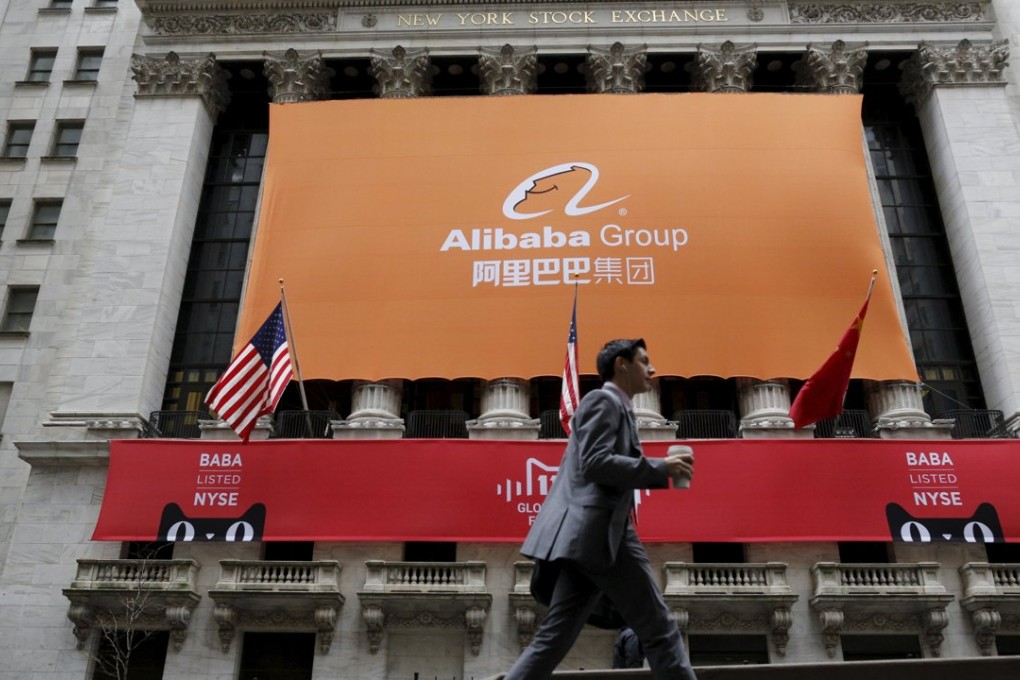MSCI China index inclusion gives boost to Baidu, Alibaba and 16 other firms
An estimated US$7b will start to flow into stocks at end of month

New York-listed China stocks including Baidu and Alibaba received a big boost on Thursday night by being among the first Chinese American Depository Receipts (ADRs)added to a key index used by fund managers and investors to build portfolios and track performance.
In total 14 ADRs, including online travel agencies Qunar and Ctrip, education group New Oriental Education, and Alibaba rival JD.com, were added to the MSCI China index.
An estimated US$7 billion will start to flow into these stocks come November 30, when the changes first take effect, from passive funds that track the index. A further US$43 billion to US$68 billion is likely to follow as stock-picker fund managers who use MSCI indices as benchmarks adjust their portfolios to keep pace with the new weightings.
Commenting on the announcement, Neil Atkinson, Asia-Pacific head of depository receipts at BNY Mellon said: “Inclusion in the MSCI indices is an excellent way for the newly included companies to enhance their profile. In the near term, their inclusion will drive passive investment to these companies. This is a natural progressive step which we have been expecting given the continued appetite from international investors to invest in companies that are defining China’s new economy.”
The changes will effectively double the weighting of technology focused stocks in the index, while lowering the emphasis on financials. In addition to ADRs, a further four China-themed stocks were added to the index, including a surprise entrant – Hong Kong-listed Saipan casino operator Imperial Pacific International. Shares in the firm, linked to Macau junket operators, leapt 18.09 per cent to 23 HK cents on Friday on the news.
A MSCI spokesman did not respond to questions on why the firm, with a market capitalisation of US$4.26 billion compared with Alibaba’s US$198 billion, had been included alongside some of China’s largest firms.